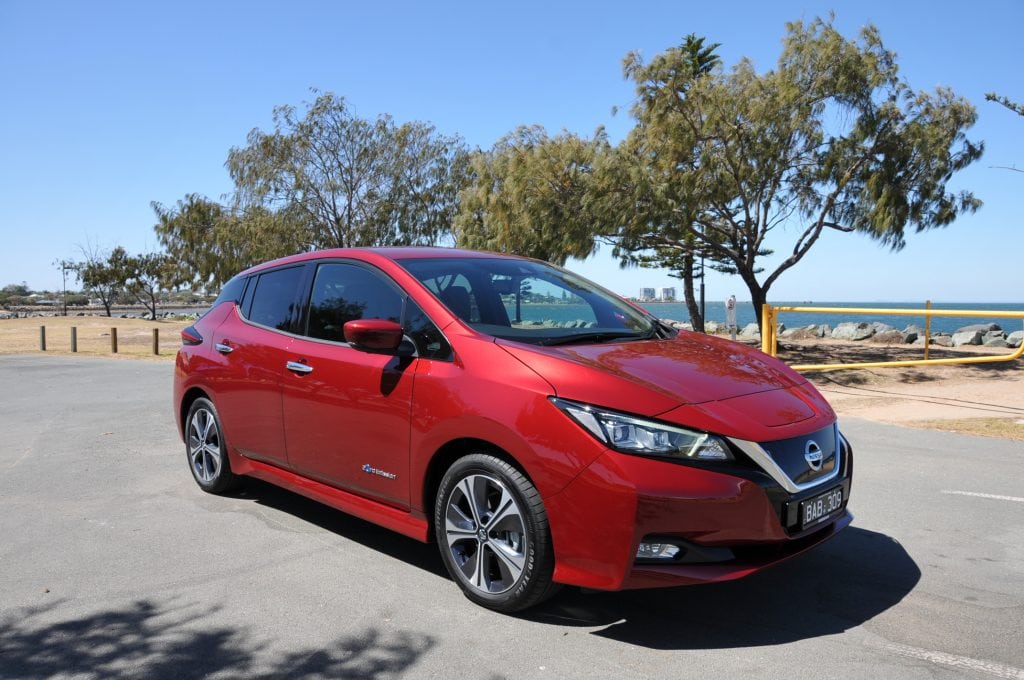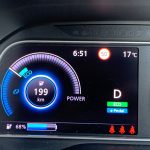I’ve scraped this article from today’s Financial Review to proffer a comment. You can read the full story through the link at the bottom of the page or go out and buy today’s edition. Own an electric car? This one’s for you.

Arguably, both state and federal governments are coming late to the EV party. Both have pushed back against the electric vehicle revolution in terms of incentives and now as Mark Ludlow suggests, user charges for declining fuel excise revenue
It’s time for the various levels of government to implement change, rather than be dragged kicking and screaming into the future.
I say this to my local, state and federal members. The time to act is now!
“State governments could earn hundreds of millions of dollars a year in new revenue by 2025 if they introduced a road user charge for electric vehicles to make up for declining fuel excise revenue, according to a new report.
While the federal government has dithered on the issue of road user charging in recent years – despite the looming hole in its budget revenue – a new report by Infrastructure Partnerships Australia said federal and state governments had five years to introduce a user charge before the market was swamped with affordable electric cars.
Infrastructure Partnerships Australia chief executive Adrian Dwyer said it was time to act on road user-charging now. Dean Sewell
“While electric cars still only represent a small fraction of new car sales, the future of our light vehicles fleet is electric,” Infrastructure Partnerships Australia chief executive Adrian Dwyer said.
“Once there is an electric car in every street, the opportunity will be lost.
“Electric vehicle motorists pay nothing at the pump and only contribute to the road network through state-based road access charges. Under the current system, more electric vehicles will mean less funding for roads.”
Advertisement
The Commonwealth receives more than $11 billion a year in fuel excise, but more efficient vehicles have led to a decline in revenue, which has slumped 20 per cent between 1998 and 2015. The uptake of electric vehicles is set to exacerbate the fall in excise revenue.
The IPA report to be released on Thursday has suggested a simple, distance-based user charge of up to 4 cents per kilometre should apply to electric vehicles only.
Owners would be required to submit odometer readings every six or 12 months to transport authorities when renewing their licence.
Existing petrol-based cars will continue to be taxed the fuel excise, with the revenue still flowing to the federal government. The user charge for electric vehicles could be capped to ensure it didn’t exceed the fuel excise.
RELATED
Time to look at overcapacity in global motor vehicles
“Clearly, how we pay for roads needs to change. Electric vehicles present a unique opportunity to attach reform to the rise of emerging technology,” the report said.
“A road-user charge for electric vehicles is a no-regrets reform that would benefit Australians for generations to come.”
Road pricing has been recommended by the Productivity Commission and Infrastructure Australia but has been put in the “too hard” basket by politicians.
The IPA concedes there might be a constitutional issue preventing the federal government from introducing the user charge, given it would constitute a Commonwealth charge on roads which are the domain of state governments.
It recommends state and territory governments working together to introduce a compatible road user charge for electric vehicles. The rate could vary between states.
Fuel excise revenue has been falling in recent years, while kilometres driven has been increasing. Infrastructure Partnerships Australia
The user charge could be adapted down the track to move to a location, time or mass-based charge.
In an era of dwindling revenue bases for states, the IPA said the road user charge could offer states and territories with a lucrative incentive.
“There is a substantial carrot for states and territories that embrace this reform – the opportunity to tap into a new source of revenue,” the IPA report said.
“This would enhance the autonomy of jurisdictions to manage both the supply and demand of their road networks, including directing investment to transport networks with less reliance on, or intervention from, the federal government.”
The IPA predicts revenue from a road user charge for electric vehicles could total hundreds of millions of dollars by the mid-2020s and into the billions by 2030.
Electric vehicle savings
The report found the new user charge would not slow the uptake of electric vehicles in Australia.
Analysis for IPA by EY found even with a charge of up to four cents per kilometre, electric vehicles would still be a cheaper proposition than internal combustion engines – offering a saving of about $3600 over an eight-year lifespan.
Electric vehicles account for less than 0.076 per cent of Australia’s total car fleet, or a few thousand.
This article was taken from the Financial Review. The full article is available here.
https://www.afr.com/companies/transport/now-is-the-time-to-tax-electric-cars-ipa-20191120-p53ccc
While electric cars, like Elon Musk’s Tesla, are currently viewed as luxury items – with a six-figure price tag to match – they are coming down in price, especially as traditional car manufacturers like Volvo, Volkswagen and Mercedes-Benz signal plans for mass production and the phasing out of petrol cars.
Editor – And let’s not forget the price leaders in Nissan, Hyundai and others as well as the PLUG In Hybrids that are heading for our shores.
Price parity between electric cars and traditional petrol cars is expected to be reached by 2024.
The IPA report said a distance-based charging regime for large vehicles and diesel-powered cars had worked well in New Zealand, where it has been in place since 1987. It will apply to electric vehicles once they reach 2 per cent of the nation’s vehicle fleet”.
Mark Ludlow Queensland Bureau Chief
Related Articles
- Nissan Leaf EV Review – The Loudest Noise is Your Heartbeat.
- ‘Frankenfurter’ Motor Show 2019 – Honda E Car Shown
- VW ID.3 ELECTRIC HATCH DEBUTS AHEAD OF FRANKFURT MOTOR SHOW
Get in Touch with Car Business – Skip the Dealerships
As a licensed motor dealer for over 40 years, I’m legally able to buy and sell all new and used motor cars. So if you’ve got a trade-in, I can help with that too.
It’s easy to get in touch.
Address: 2/265 Oxley Avenue, Cnr Duffield Rd, Margate QLD 4019
Mobile: International +61 418 748 498
Australia 0418 748 498
Websites: https://www.carbusiness.com.au
https://www.genuinespares.com.au
Email: [email protected]
Facebook: www.facebook.com/carbusinessqld
LinkedIn: https://www.linkedin.com/in/bobaldons/
Twitter: https://twitter.com/mycarbusiness
Instagram: https://www.instagram.com/carbusinessbrisbane/
Pinterest: https://www.pinterest.com.au/carbusinessbrisbane/





3 thoughts on “Now is the time to tax electric cars: IPA”
What a ridiculously one-eyed article.
1. the fall in revenue is caused by vehicles getting more efficient and hybrids will accelerate this – should all fuel efficient cars pay a charge. Trying to even out contribution this way is effectively rewarding the highest polluting cars, who are currently punished by buying more fuel.
2. There is no mention of the carbon price caused by the polluting cars, that paying the fuel excise effectively taxes them on. We put tax on cigarettes to discourage smoking and reduce long term adverse health impacts, but we don’t complain about the lack of tax generated by the drop in smoker numbers, or suggest non-smokers pay a non-smoking charge.
3. 75% of fuel excise goes to general revenue and not to roads. General revenue includes numerous taxes on businesses and individuals and any gap from dropping fuel excise can easily be met elsewhere, or by a reduction in health expenses due to cleaner air. EV’s may make up 50% of new cars by 2030, but it will take another 10 years before they represent half the total car fleet. If current revenue is $11bn and only $2.7 bn goes towards roads, then why are we stressing about that dropping by half over the next 20 years and being eliminated in 30 years. That’s a $90m/year drop, equivalent to $3.50 per person per year, or 7 cents per person per week. Are you saying Australians wouldn’t be willing to pay an extra 7 cents per week each year to have cleaner roads and cities?
4. Australia currently provides $29 billion in subsidies to fossil fuels each year according to the IMF. Makes the argument about the slow drop of the $11bn revenue seem a bit pointless don’t you think? Halve the subsidies to fossil fuels and the job is done.
Well said Max and thanks for commenting
I think there is a good case to be made for getting a system in now – steady as she goes however. Road User Charging in other places like Singapore has taken a very, very long time to develop in a sustainable way. Start with exceptionally low rates for EVs (Even just reforming for instance current charges so they won’t pay any more really) and gradually build it up as need be. Last thing that is needed is a lumping great charge on EVs at this infantile stage for their takeup. But if it is left too long, and people get too used to freeloading as such and then the point comes when EV takeup quickly heads north, and the road funding model will be in huge trouble.
Initial stages should be about proof of concept.